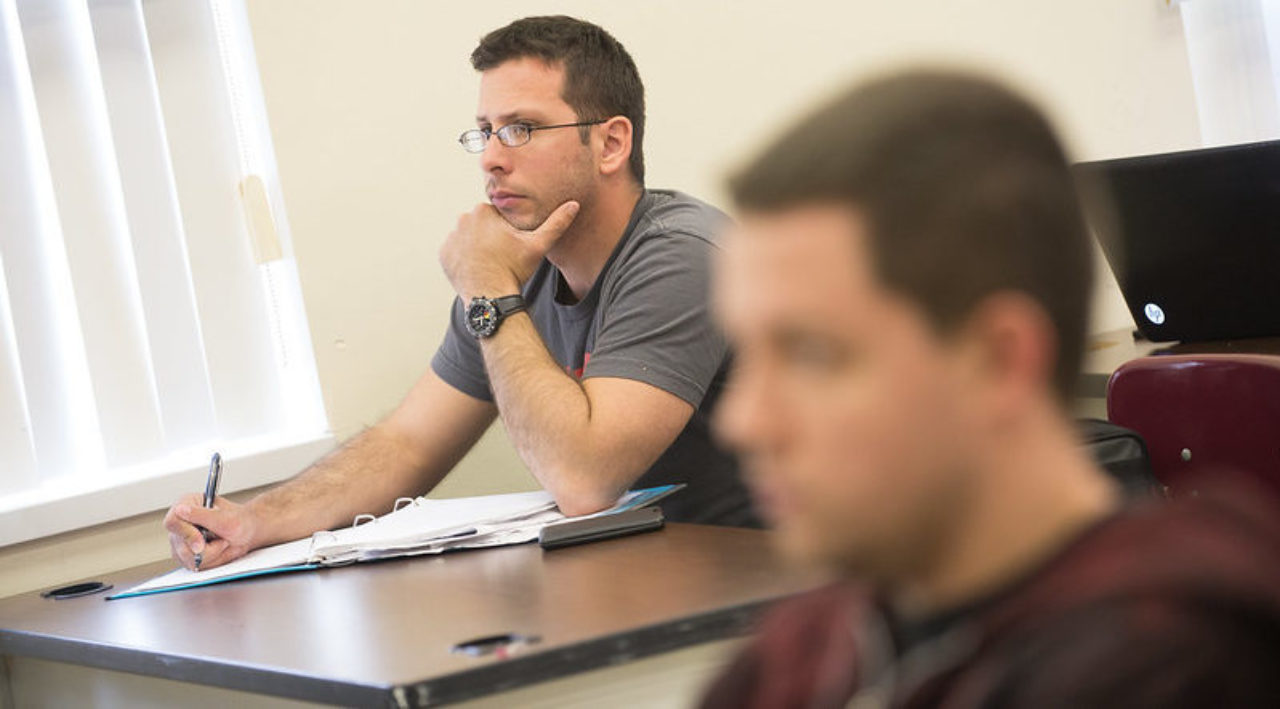Forensic Psychology Minor

Metro Campus
One Required Foundation Course (3 credits)
- PSYC 1201 General Psychology
Two Required Major courses – (6 credits) from the following:
- PSYC2210 Statistics
- PSYC2204 Child Development
- PSYC2234 Social Psychology
- PSYC2211 Research Methods [Prerequisite: PSYC2201 Statistics or equivalent in major (e.g., DSCI2130 Business Statistics)]
- PSYC3005 Abnormal Psychology
- PSYC3015 Theories of Personality
Two Forensic Psychology Track Courses – (6 credits) from the following:
- PSYC3305 Adolescent Growth and Development
- PSYC3317 Psychology and the Law
- PSYC3319 World of the Psychopath or an approved CRIM course
- PSYC3421 Psychology of Criminal Behavior [Prerequisite: PSYC3005 Abnormal Psychology]
Students who are majoring in psychology are not permitted to enroll in this minor. Psychology majors may elect to complete the forensic psychology track within their major and must complete a minor in another area.
Florham Campus
There is an interdisciplinary Forensics minor. This minor consists of courses in psychology, criminology, sociology, and biology. It is not a psychology-specific minor.
Minors are optional on Florham.
Course Descriptions
-
DSCI2130 Second semester of a two-semester sequence in business statistics. Topics include confidence interval, hypothesis testing, simple and multiple regression, and analysis of variance. Business data is analyzed using Excel spread sheets. Emphasis is on understanding, interpreting statistical information and explaining statistical ideas to non-specialists.
-
PSYC1201 An introduction to basic and essential principles and practices of contemporary psychology. Topics included are psychological methods, motivation, emotion, perception, learning, thinking, problem-solving, intelligence, personality development. Fall, Spring
-
PSYC2201 Statistical concepts and procedures, with emphasis on descriptive statistics and an introduction to inferential statistics. Relevance to behavioral sciences.
-
PSYC2204 Growth and development of children in terms of sensorimotor, intellectual and social behavior. Scientific findings and theoretical viewpoints presented with implications concerning the child for the family, school and community.
-
PSYC2210 An introduction to the basic descriptive and inferential statistic procedures that are useful to the psychologist in the design and analysis of research. Included are t test, analysis of variance, correlational and nonparametric methods. A two-hour weekly laboratory provides practical experience with these procedures. Fall
-
PSYC2211 An introduction to the methods of scientific experimentation in psychology by means of laboratory experiments, studies of problems in design and control of experiments and analysis of the experimental literature. A two-hour weekly laboratory will provide experience in designing, running and reporting experiments in various areas of psychology. Spring
-
PSYC2234 Representative theories and selected problems concerning determinants of social behavior. Socialization, attitude structure and change, social norms, prejudice, leadership and group dynamics.
-
PSYC3005 A study of the long-standing and serious forms of mental disturbance, including character disorders, brain damage, retardation and psychotic processes; central focus on classification, dynamics, symptoms and treatment, with practical experience as a companion to mental patients. Fall
-
PSYC3015 A survey of different approaches to personality theory, with some attention placed on empirical studies within context of the various theories. Fall or Spring
-
PSYC3305 Factors contributing to adolescent mental health, behavior and adjustment are covered. Developmental characteristics, the impact of culture as well as intra- and interpersonal issues are inte- grated into the understanding of adolescent functioning. Risk factors particularly associated with juvenile delinquency and conduct disorder are emphasized, examining etiology, prevention and treatment.
-
PSYC3317 Application of psychological principles to legal problems. Analysis and implications of court decisions. Current controversies: insanity defense, jury selection, persuasive techniques, sentencing, competency, use of hypnosis, capital punishment, psychological testing. Conducting forensic inter- views will be incorporated.
-
PSYC3319 This course will provide students with a broad overview on psychopathy focusing on key elements of this ?condition? and dismissing myths associated with it.
-
PSYC3421 The psychological bases and dynamics of criminal behavior. Use of cases from the forensic psychology literature to illus- trate various theoretical and explanatory aspects of criminal behavior. Emphasis on the relationships between various psycho- pathological conditions, personality disorders and criminal and antisocial behavior.